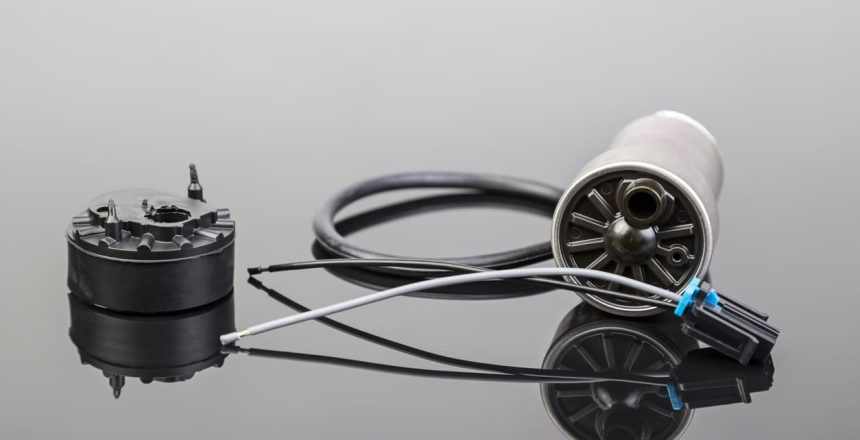Learning the symptoms of a bad fuel pump makes it easier to identify and repair problems
Key takeaways
- Fuel pump failure is rare before your car drives 100,000 miles
- Early fuel pump failure could still be an issue
- A bad fuel pump can leave you stranded
- Listening for warning signs can reduce your risk
Your vehicle’s fuel pump is responsible for directing fuel from the gas tank to the engine. This part is either electrically or mechanically controlled, depending on the car’s make, model, and age. It’s a critical component in every gas-powered automobile.
A fuel pump typically lasts for about 100,000 miles, so it’s unlikely to become a problem unless you’ve had your vehicle for a long time or have purchased an older car. However, fuel contaminants and electrical faults can cause premature wear, so you’ll want to monitor this part for problems.
Fortunately, there are telltale signs your fuel pump is close to breaking down. Paying attention to these signals can lead you to a mechanic before fuel-pump failure leaves you waiting for a tow truck on the side of the road.
Here’s a look at seven of the most common fuel pump-failure symptoms that could occur in your vehicle.
1) Your car won’t start
Perhaps the clearest sign you have a fuel-pump issue is when your car won’t start or struggles to crank. Because the fuel pump is responsible for pushing fuel to the engine, an internal-combustion engine can’t start without a functional one.
As your fuel pump weakens, you might notice your vehicle failing to start on occasion or take multiple cranks to rev the engine. Don’t ignore these signs; it’s only a matter of time before your car won’t start or dies while you’re driving on the highway.
2) The fuel tank is whining
Before the car stops working entirely, you might notice other warning signs. One common symptom is a whining sound in the fuel tank. A functional fuel pump should make a low humming noise as it distributes fuel. A loud whining noise means the pump is trying to do its job but cannot move the fuel.
The sound will be loud enough to hear when standing outside the vehicle and usually means a fuel-pump problem. Remember that cars can produce a similar noise when out of fuel, so check your gauge before heading to a mechanic.
3) A sputtering engine
Because a failing fuel pump struggles to push fuel through the system, a sputtering engine is another sign you have an issue. This problem typically occurs at high speeds because the fuel pump cannot keep up with the amount of fuel consumed when driving fast.
The sputter will start slowly, with a slight hesitation, before returning to normal. The problem will worsen over time. A functional fuel pump provides a constant stream of fuel at the ideal pressure, but one that is aging or breaking down can’t.
4) Reduced fuel efficiency
With today’s fuel prices, you don’t want to increase visits to gas stations, but that could happen when your fuel pump fails.
Reduced fuel efficiency occurs when a valve fails to open within your fuel pump. The result is more gas than needed entering your fuel system, increasing fuel usage.
Filling the gas tank is incredibly expensive. Watch your fuel consumption and replace your fuel pump early if your mechanic determines it’s the culprit.
5) Power loss
You could experience a loss of power when your fuel pump is dying, especially when putting the vehicle under stress. For instance, your engine could shut down when driving up a large hill or towing a heavy load when your fuel pump starts to break down.
Like the engine sputtering on the highway, this problem occurs because the pump can’t keep up with fuel needs. Power loss can be dangerous; visit a mechanic immediately if you experience this problem.
6) Vehicle surges
A surging engine makes it feel like you’re pressing the gas pedal when you aren’t. It usually occurs randomly and can happen when you’re idling or accelerating.
Car surges mean the fuel pump can no longer consistently provide your car’s engine with the right amount of fuel because it’s beginning to wear down.
7) Stalling engine
Your engine won’t stall until your fuel pump problem is critical because even an old fuel pump will send some fuel to the engine. Once the pump is nearly shot, though, your engine could stall while you’re driving.
A stall usually occurs because the fuel pump is causing the engine to overheat. In this scenario, the engine isn’t receiving enough fuel, so it must work harder to keep the vehicle running. Eventually, this additional strain on the motor causes it to overheat and shut down.
You might notice your engine running hot as your fuel pump reaches the end of its life cycle, so keep an eye on that problem, too.
Limiting the wear on your car’s components
These fuel-pump failure symptoms are worth watching as you drive your vehicle, but you can keep this component in better shape by driving less. For instance, shipping your car when traveling long distances reduces the wear on your fuel pump and other parts, saving you money on maintenance and future repairs.
Mercury Auto Transport is a car-shipping broker that can help your ideal carrier. These drivers are also fully licensed and insured, providing peace of mind. Contact Mercury Auto Transport today to get a quote or speak to a representative.






